1–What is the title of your latest release?
THE GOOD WIFE OF BATH
2–What’s the “elevator pitch” for your new book?
Set in the Middle Ages, it’s the story of the most infamous of Geoffrey Chaucer’s characters from his Canterbury Tales – the bold, sensual, assertive, and much-married Wife of Bath – but told in her own voice. The reader meets her at 12 years of age and we’re taken through her five marriages and what becomes of her beyond the limits of Chaucer’s poem in every way. It’s funny, heart-wrenching, infuriating, and draws on history to tell a much-maligned woman’s (mostly) true story.
3–How did you decide where your book was going to take place?
Ah, that was easy. I had great source material with the original poem, so placed my characters in all the places the poem mentions – Bath in England and its surrounds, but also medieval London, Cologne, Jerusalem, Rome, Canterbury, and other places too. I was able to travel vicariously when the world was shut down. A wonderful guilty pleasure, really.
4–What are three words that describe your main character?
Sassy, clever, and kind.
5–Which side character stole your attention the most from the main storyline?
There were two really – her best friend and step-daughter, Alyson (she is wise, quiet, prepared to let the Wife shine but also tell her when she is a fool or acting outrageously – which is most of the time) and Geoffrey Chaucer himself. He insisted on playing a much bigger role than I originally intended.
6–What’s something you learned while writing this book?
I learned so much about the condition of medieval women and the hard lives both men and women (especially those not born into titles or wealth) endured. But apart from that, the most interesting thing I did learn was that Geoffrey Chaucer, sometimes called the “father of English literature” was once accused of “raptus”. That can mean either rape or kidnapping, but it’s in court records of the era. The charges were ultimately dropped but it was too fascinating a fact not to include in the book and surmise the whys and wherefore of such serious charges.
7–Do you edit as you draft or wait until you are totally done?
Oh boy. I try to wait until I am totally done and know I should but I can’t resist fiddling as I go. I am a linear writer in that I have to be satisfied with each section/chapter in draft form as I go and if that means editing a chapter ten times before I forge ahead I do. But I find I get to a place in the book, usually past halfway, where the daily editing either reduces or ceases and I plunge ahead without too much editing. Then, of course, once it’s finished, I edit it over and over and over until I can no longer see the words for the sentences and it goes to my agent and publisher!
8–What’s your favorite foodie indulgence?
Hot chips. I think you’d call them French Fries over in the USA. But I cannot resist choc-chip cookies either…
9–Describe your writing space/office!
I write in a beautiful room in a sandstone Georgian House that was built by convicts about 150 years ago. It has ruby-coloured curtains and cream walls and a dark chandelier hangs above me. I have a partner’s desk, a large Apple Mac, I burn candles and listen to music of the era while I write. My three dogs are generally splayed in their beds behind me (near the fireplace – it gets cold where I live) or at my feet. And I am surrounded by wooden bookcases filled with research books. It’s (mostly) my happy place, though I’ve been known to cry a bit in here too – usually when I am writing a scene that is emotionally difficult or I finish a book – it’s hard to say “goodbye” to characters you’ve imaginatively birthed, known and loved.
10–Who is an author you admire?
Sooooo many. Where do I start? Lately, Madeline Miller, Pat Barker, Elizabeth George, Michael Connelly, Alix E. Farrow, Juliet Marrilier, Michael Robotham and Stuart MacBride. I can’t stop now I’ve started!
11–Is there a book that changed your life?
There were a few. First, C.S. Lewis’s Narnia books as a child. Then, as an adult, Homer’s Odyssey, Shirley Hazzard’s The Transit of Venus and Margaret Atwood’s The Handmaid’s Tale.
12–Tell us about when you got “the call.” (when you found out your book was going to be published)
Oh gosh… It was early morning here in Australia and I opened an email from my agent who very casually, after answering a few chatty questions, says, “by the way, they loved the manuscript and….” I screamed, happy-danced around my kitchen, my dogs barking joyously, my husband and I hugged and maybe shed a few tears. I floated all day.
13–What’s your favorite genre to read?
Crime. But, I’m eclectic in that I like all genres, but crime is my comfort word-food.
14–What’s your favorite movie?
Again, so many, but can I say two? Love Actually and the action movie, Nobody. Oh, and I still love Bridget Jones’ Diary.
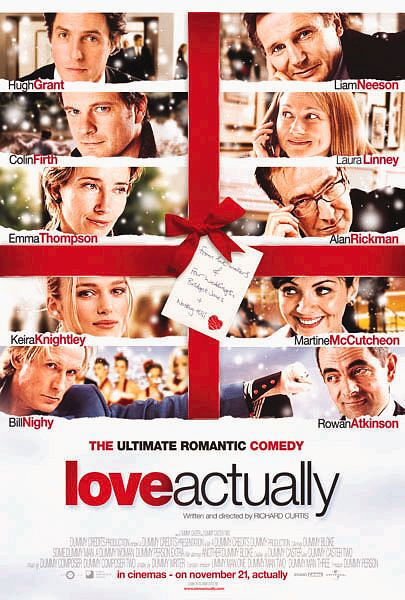
15–What is your favorite season?
Winter.
16–How do you like to celebrate your birthday?
With my family and friends, great food, music, wine, and dancing (and maybe karaoke too).
17–What’s a recent tv show/movie/book/podcast you highly recommend?
I cannot name one, sorry. Honestly, we are so spoiled for choice aren’t we? But here goes. TV series: The Last Kingdom and Line of Duty and Ted Lasso.
Books: The End of Men, Still Life, The Women’s Pages, The Other Side of Beautiful, The Last Migration.
Movies: Nobody.
18–What’s your favorite type of cuisine?
Italian
19–What do you do when you have free time?
Read and run – sometimes at the same time. 🙂 And bake. I love cooking, baking especially. Hence, I run.
20–What can readers expect from you next?
Answer: I am just finishing (editing) a book set during the latter years of the reign of King Charles II (the Restoration period) set mainly in the theatre and featuring the first professional female playwright, Aphra Behn. It was also a time when plots and plans to overturn the monarchy and the succession were rife and ‘journalism’ was out of control – so it’s a period of huge social and sexual upheaval, terrible religious fanaticism and strife and when women were finding a place on stage and through public expression of the written word. It’s called The Escapades of Tribulation Johnson.
THE GOOD WIFE OF BATH by Karen Brooks
A provocative, immersive medieval novel starring one of literature’s most unforgettable characters in her own words—Chaucer’s bold and libidinous Wife of Bath.
In the middle ages, a famous poet told a story that mocked a strong woman. It became a literary classic. But what if the woman in question had a chance to tell her own version?
England, 1364: When married off at aged twelve to an elderly farmer, brazen redheaded Eleanor quickly realizes it won’t matter what she says or does, God is not on her side—or any poor woman’s for that matter. But then again, Eleanor was born under the joint signs of Venus and Mars, making her both a lover and a fighter.
Aided by a head for business (and a surprisingly kind husband), Eleanor manages to turn her first marriage into success, and she rises through society from a cast-off farm girl to a woman of fortune who becomes a trusted friend of the social-climbing poet Geoffrey Chaucer. But more marriages follow—some happy, some not—several pilgrimages, many lovers, murder, mayhem, and many turns of fortune’s wheel as Eleanor pursues the one thing that all women want: control of their own lives.
Literature and Fiction Literary [William Morrow Paperbacks, On Sale: January 25, 2022, Paperback / e-Book, ISBN: 9780063142831 / eISBN: 9780063142855]
Buy THE GOOD WIFE OF BATH: Amazon.com | Kindle
| BN.com | Apple Books | Kobo | Google Play | Powell’s Books | Books-A-Million | Indie BookShops | Ripped Bodice | Love’s Sweet Arrow |
Walmart.com
| Book Depository | Target.com | Amazon CA | Amazon UK | Amazon DE | Amazon FR
About Karen Brooks
Australian-born Karen Brooks is the author of nine novels, an academic, a newspaper columnist and social comentator, and has appeared regularly on national TV and radio. Before turning to academia, she was an army officer, and dabbled in acting. She lives in Hobart, Tasmania.


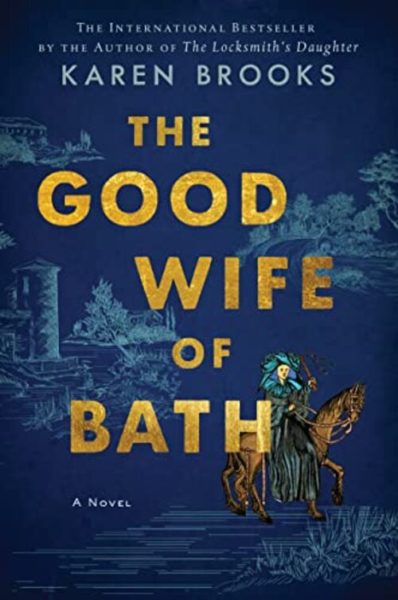
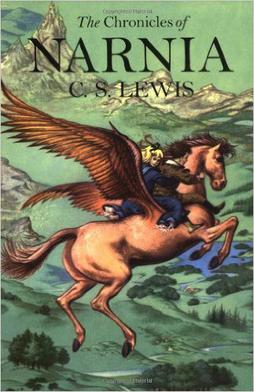
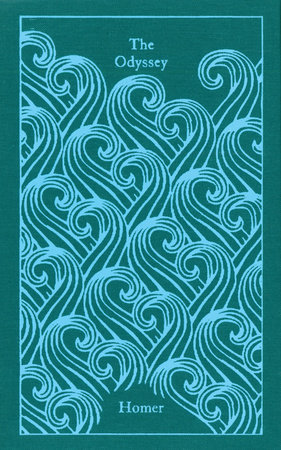
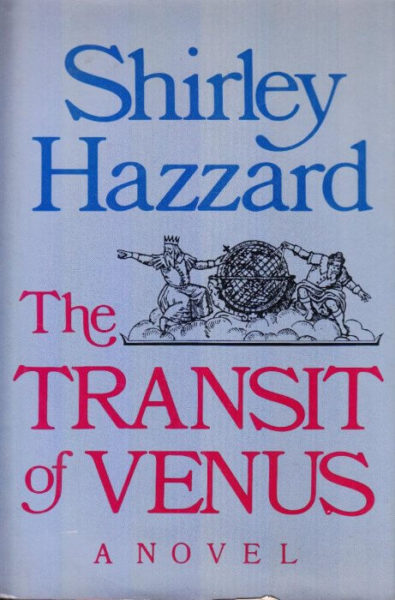
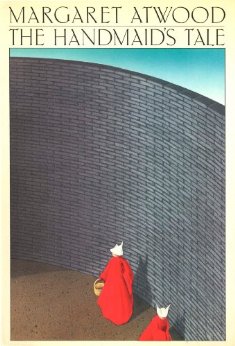
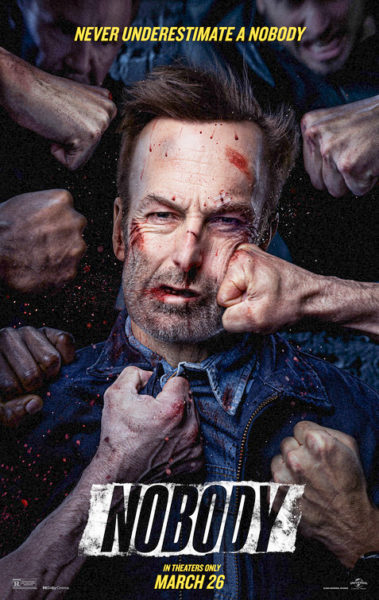
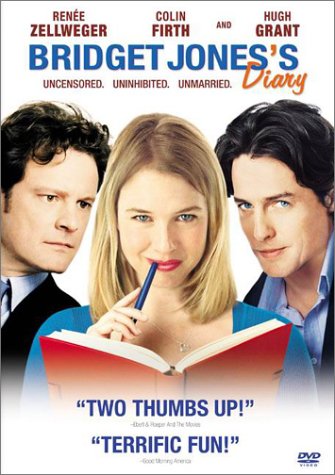
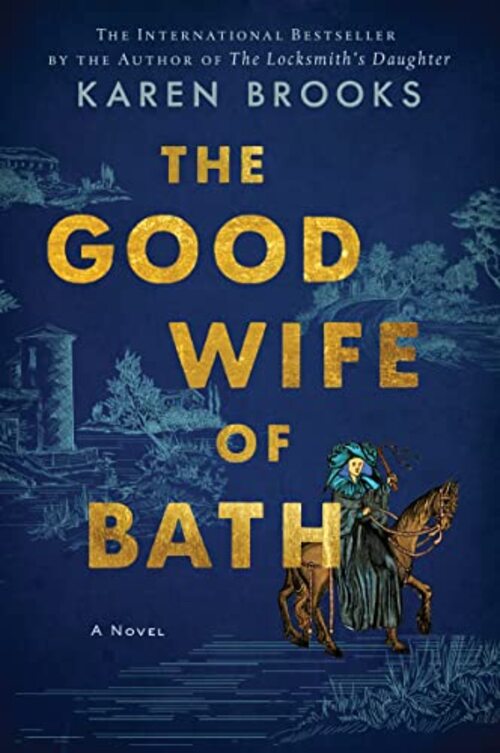
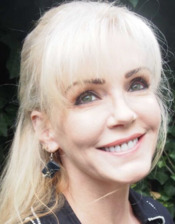
No Comments
Comments are closed.